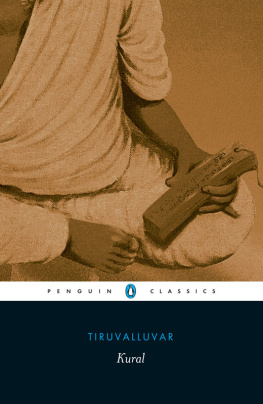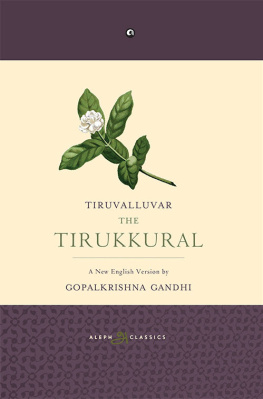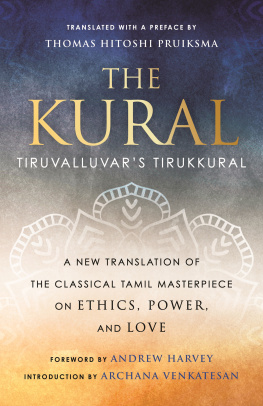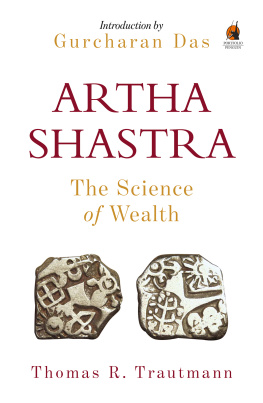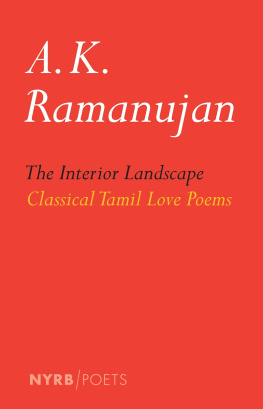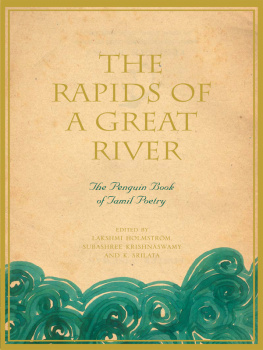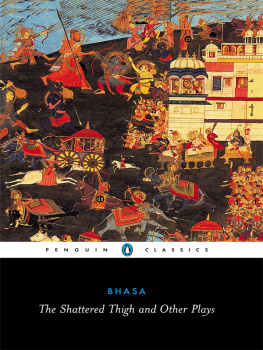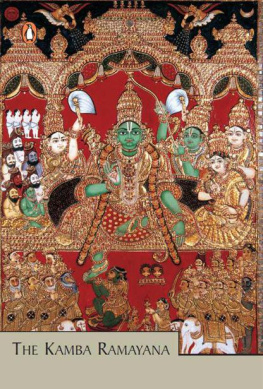P.S. Sundaram
New Zealand | India | South Africa Penguin Books is part of the Penguin Random House group of companies whose addresses can be found at global.penguinrandomhouse.com.
This collection published 1990 Copyright P.S. e-ISBN: 978-9-351-18015-9 This book is sold subject to the condition that it shall not, by way of trade or otherwise, be lent, resold, hired out, or otherwise circulated without the publishers prior consent in any form of binding or cover other than that in which it is published and without a similar condition including this condition being imposed on the subsequent purchaser.
Introduction
The earlier Indologists (with only a few exceptions) associated India exclusively with the
Vedas, the
Ramayana, the
Mahabharata, the
Hitopadesa and the poet Kalidasa. This was a result of the discovery of Sanskrit by the British and German savants in the late eighteenth and the early nineteenth centuries which led to something like a second Renaissance in the world of learning. Sanskrit was hailed as the mother of all the Indo-Germanic languages; or at any rate their eldest sister. Sir William Jones described it as a language of a wonderful structure; more perfect than the Greek, more copious than the Latin, and more exquisitely refined than either. However, what these scholars soon came to see was that India was not limited culturally to the Aryan north. The Dravidian south was actually older, in the sense that prior to the Aryan invasion the civilization which spread throughout the country was almost certainly Dravidian.
A great deal of this pre-Aryan civilization still exists in the south, and traces of it have been preserved in the earliest surviving Tamil poetry of the Sangam age. An American missionary, Dr M. Winslow, the author of an admirable Tamil-English Dictionary brought out in 1862, perhaps had Sir William Jones in mind when he made the same claim for Tamil that Jones had made for Sanskrit eight decades earlier. It is, he said not perhaps extravagant to say that in its poetic form Tamil is more polished and exact than Greek, and in both dialects (common and literary) with its borrowed treasures more copious than Latin. In its fulness and power, it more resembles English and German than any other living language. Tamil among all the Indian languages, next only to Sanskrit, has the oldest literary records.
But unlike Sanskrit it is a living language. Its continuity is such that a Tamil of today will have less difficulty in understanding the Tamil poetry of the seventh, eighth or the ninth century than an Englishman of today will have in understanding Beowulf or The Battle of Maldon. The name Tirukkural comprises two parts, tiru and kural. Tiru corresponds to the Sanskrit Sri and means sacred, excellent, beautiful. As an honorific meaning Honble it is preferred by many in the south to the otherwise universally Indian Sri. Kural may be explained as something which is short, concise, abridged.
It is applied as a literary term to a metrical line of two feet, or a distich or couplet of short lines, the first of four and the second of three feet. These definitions are Dr Winslows and correspond to both the traditional and the actual. Though the work is popularly known by the form in which its stanzas have been written, its earliest admirers and perhaps even the author himself referred to it as the muppaal, meaning three divisions; this definition has to do with the organization of the book into three themes: Virtue, Wealth and Love. These are the first three of the four purushaarthas, the supreme aims in life, which every man must seek, the fourth being moksha or the release from the unending cycle of birth and death. It is said in explanation of the omission of this fourth, the summum bonum, that the proper pursuit of the other three will inevitably lead to the fourth, which in any case admits of no description. There is also a precedent for such an omission in the Santiparva of the Mahabharata which mentions only the trivargas, the three divisions.
Valluvar, the author of the Kural, also invariably has the honorific Tiru as a prefix to his name. Whether Valluvar was the poets name or that of the sub-caste to which he belonged (determined by the occupation or vice-versa) is not certain. Valluvan was a name associated with a weaver. It was also the name given to a drummer proclaiming a kings orders on an elephant-back. The r in Valluvar instead of the n as in Valluvan is a plural indicating respect. Those who could not accept that a non-Brahmin could have produced a work of such great merit are credited with the invention of a legend that Valluvar was the illegitimate son of a Brahmin father and a Harijan mother.
His birthplace was by tradition held to be Mylapore, a part of Madras, where there is a temple built to honour him. But, in recent years, Dr S. Padmanabhan has propounded a theory based on epigraphical and other evidence that Tiruvalluvar was probably born in what is now the district of Kanyakumari, in the extreme south of Tamil Nadu, and was perhaps the chieftain-king of Valluvanadu who probably, like Mahavira and Gautama Buddha, turned from royal personage to spiritual thinker. Mylapore might well have been the place of his death rather than his birth. It is not easy to fix the date of the

